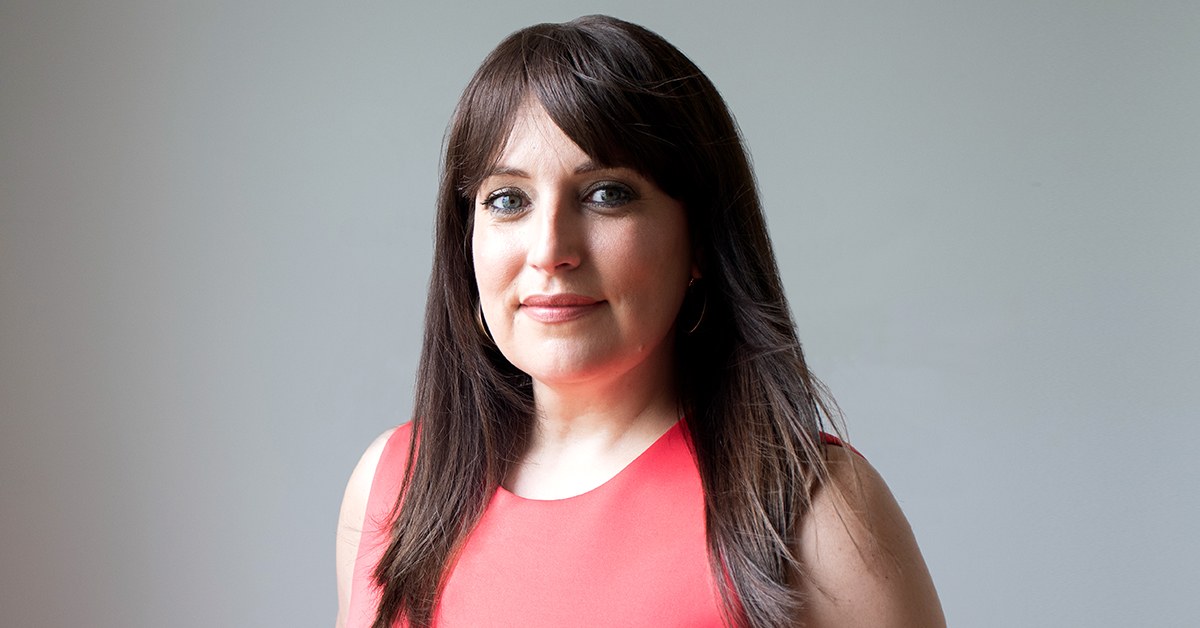Virginia Kase's Midterm Plan: Make It Easier for Women to Vote

Nearly 26 years after Virginia Kase voted in her first election, her voice still rings with the hurt and frustration she felt that day. “I [was] excited. It [was] this great rite of passage [and] I go to the table to register, and I look over and my mom’s having a problem.”
While it was the first time Kase, now 46, had ever set foot in a polling station, her foster mother—originally from Puerto Rico—was a regular voter. Still, Kase said, “Her English wasn’t perfect. Sometimes people didn’t understand her. So I went over to make sure she was okay and able to communicate… They were asking her for proof of residence. And I was horrified.”
Now, in her first interview as the incoming CEO of the League of Women Voters, Kase told Glamour that the memory of feeling powerless to intervene on behalf of her own mother brings a deeply personal dimension to her new mission: Helping as many Americans as possible exercise their right to vote.
“I never want anybody to have to go through what my mom went through,” Kase said during a phone conversation.”She was able to vote that day. She went home, she got a utility bill, she came back, she slammed it on the table, and she made sure that her vote counted… But there are a lot of women who don’t have that same comfort with going back and doing what they need to do.”
Kase comes to the League with a track record of work with organizations focused on immigrant and civil rights. Until mid-July, she’s COO of CASA and CASA in Action, where her responsibilities range from political strategy to collective bargaining. (Her tenure at the League begins July 25.) No stranger to politics, her background also includes years spent with organizations that addressed youth gang violence and fostered career training in her hometown of Hartford, Connecticut.
She joins the nonpartisan League—founded in 1920, the same year American women won the right to vote—in the sprint to November’s crucial midterm elections.
“I think that women are going to do tremendous things this year. It’s a unique time in our history,” Kase said.
The League claims more than 300,000 members and supporters spanning all 50 states. It promotes voter registration and education, opposes policies it identifies as voter suppression, and supports reforming campaign finance and gun laws.
“One of the things [that] drew me to the League— in addition to [the] historic significance of this amazing organization that is nearly 100 years old—is this renewed focus on diversity, equity and inclusion,” she said. “Lifting up women of color [and] also bringing more young women into the fold [are] two things that for me are extremely important.”
A wealth of research suggests requiring photo ID or even proof of citizenship can have an outsized impact on minority, young, and low-income voters. The strictest proposals, championed in the name of election integrity, have run into trouble in the courts; President Donald Trump’s own claims of widespread voter fraud remain unproven.
“It’s extraordinarily important that we make voting as easy as possible. We don’t want to create barriers,” Kase said. “It’s unjust, and something that the League will continue to fight against to ensure that everybody is able to exercise their Constitutional right to vote.”
Kase, now herself a mother of two, says her first vote back in 1992 was the moment when she “realized that my perfect English, the way that I look, was different from my mom. [It] really showed me the privilege that existed within me, and that I needed to do something about it.”
The University of Maryland graduate will bring that memory to the new job—along with the backstory of coming up in Hartford at a time when youth violence was so bad that a National Guard-run program for high school dropouts was shut down after being overrun by gangs. “I grew up in a community where people went to jail,” says Kase. That experience shaped her interest in another goal: Restoring voting rights to people who have lost them after a felony conviction.
But, with all the work of engaging women voters and helping them exercise their right ahead of her, does Kase believe American politics can really be changed by the so-called “pink wave?”
“I hope so. I think the wave has been coming for a long time. Even since before Donald Trump, women are educating themselves [more] on the issues, and you have organizations like the League [that] are focused on making sure that people have the right information,” she said. “I do hope that people turn out in record numbers this year, [just] as we [are seeing] more women run for office this year than in years before… Certainly, we’re gonna work our butts off to make that happen.”
